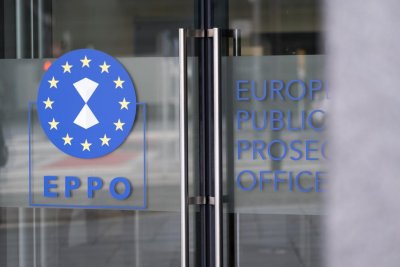The Botulinum toxin product scandal is escalating into an international issue, with authorities uncovering illegal practices in multiple countries. The latest development involves the Spanish police arresting four individuals, including Russian and Ukrainian citizens, for smuggling unlicensed Korean botulinum toxin product into Spain.

The Ministry of Interior and the Prosecutor's Office have launched an investigation following reports of women who suffered adverse effects after receiving injections with botulinum toxin product. The concern arises from the fact that the alleged practitioner placed her clients at significant health risk. To date, nine women have sought help at Pirogov emergency hospital in Sofia, with four currently receiving treatment. Medical supervision continues, and findings were reported to the Minister of Health this afternoon, February 3. An emergency import of botulinum antitoxin, an antidote used in cases of botulinum-related issues, has begun. The woman who performed the procedures has been summoned for questioning.
A broader issue regarding the use of questionable-quality Botulinum toxin product has surfaced, with a similar scandal emerging in Spain, where police arrested four people for the illegal import of botulinum toxin products from South Korea.

In Spain, authorities have uncovered a scheme involving the injection of illegal botulinum toxin product in Madrid and five other cities. Police have arrested four individuals for illegal importation from South Korea and have seized more than 700 vials of Botulinum toxin product from 24 clinics. The procedures were often carried out in the back rooms of beauty salons, nail studios, or private apartments. At least five people in Spain have reported suffering adverse effects. The illegal operation ran for at least five years, with two of those arrested being Russian and Ukrainian nationals. It is reported that in the past six months alone, the group earned over €650,000, with the funds deposited in banks in Bulgaria and Lithuania.

The group had been under surveillance for two years, and today, police conducted raids in clinics across Cadiz, Madrid, Malaga, Cordoba, Seville, and Alicante. The illegal Botulinum toxin product was imported through the port and airport in Seville, with the products primarily advertised on social media and recommended by so-called “trusted” clinics.

The investigation was supported by Spanish tax authorities, and in addition to the four people arrested, 41 other individuals have been charged with offenses related to public health, fraud, and participation in an organised criminal group.

How Did the Scandal Unfold in Bulgaria?
In Bulgaria, Arina Goodz, who presented herself as a specialist, gained the trust of her clients by offering low prices, social media promotions, and promises of safe procedures with excellent results. However, instead of fulfilling those promises, her clients experienced severe health issues, with two cases of botulism reported. Despite her claims of being a medical professional, her name is not listed in the Bulgarian Medical Association's registry.
Neli Georgieva, Deputy Chair of the Aesthetic Medicine Patients' Association, commented: “There are inquiries into individuals with questionable education who are popular on social media, and someone needs to investigate what qualifications they truly have.”
Dr. Maria Dimitrova, head of the Neurology Clinic at Pirogov Hospital, emphasized, “A cosmetic specialist should not administer products containing Botulinum toxin. Botulinum toxin is a registered medical product and should be administered by licensed doctors. The medical specialty for this field is dermatology—skin and venereal diseases.”

The affected women paid around 250–300 BGN for the procedures, while similar services in major clinics are typically two to three times more expensive. Just days after receiving the Botulinum toxin product injections, clients reported swelling, pain, and vision problems. When they sought help from Arina Goodz, she offered to inject a different substance or provide medication, which is usually available only with a prescription. Shortly after the first case of botulism in a 30-year-old woman became public, Goodz reportedly left the country under the pretext of searching for an antidote.

Dr. Katya Paskova, member of the Board of the Aesthetic Dermatologists' Association, noted, “This medication is used only by medical institutions, and only large hospitals can request to have this serum available. This product cannot be legally imported.”
The procedures were likely carried out using products not authorized by the Bulgarian Drug Agency. The substances were imported without customs control or oversight from the relevant institutions.
Dr. Paskova further explained, “These products are not registered. Only four products are officially registered, but many more are available on the market. The ability to purchase such products online allows for their use by non-medical personnel.”
The Aesthetic Dermatologists' Association and the Bulgarian Medical Association are calling for stricter control over who performs medical procedures and what products are being used.
